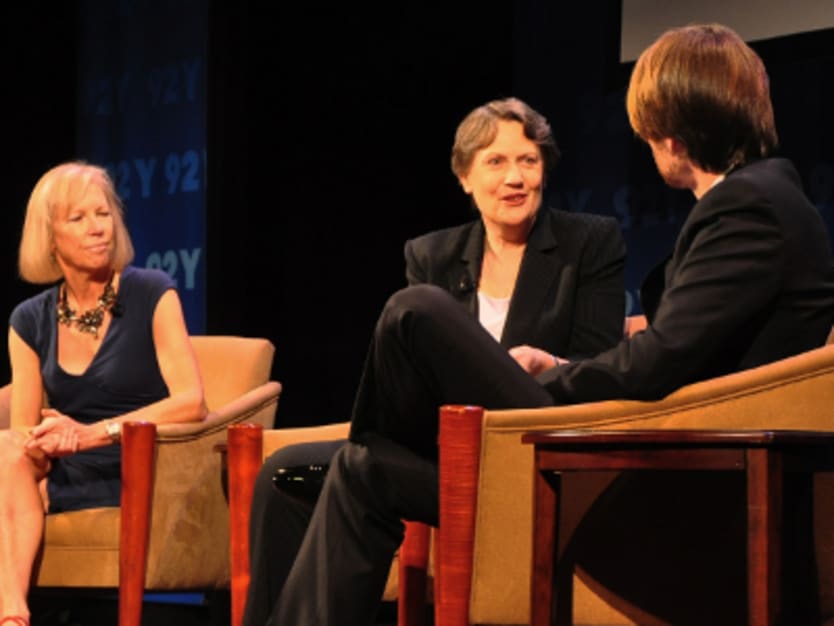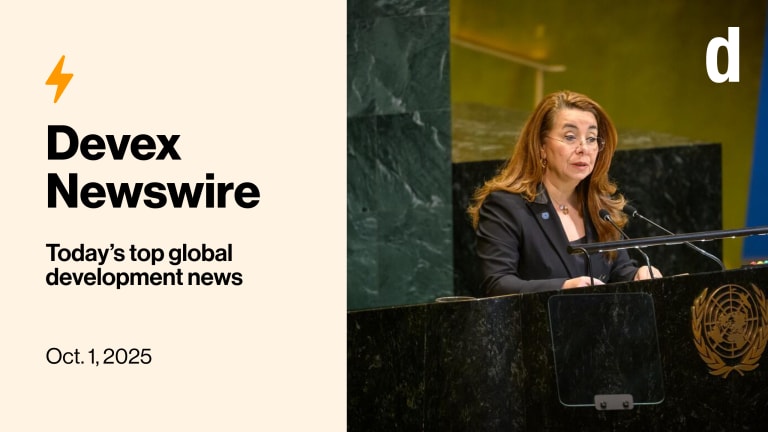
Before the end of the year, the U.N. General Assembly is expected to spell out the future direction of the global body’s development policy. It will come after months of preparation and negotiations under its Quadrennial Comprehensive Policy Review.
As lead agency of the U.N. Development Group — a consortium of U.N. agencies working on development issues — the U.N. Development Program is deeply involved in the QCPR process. Much is at stake for UNDP with the results of QCPR, as underscored by Administrator Helen Clark during the Sept. 5, 2012, session of the program’s executive board.
“As chair of the UNDG, let me emphasize that the group stands ready to support member states throughout the QCPR process. We will also look to the QCPR as we develop the next strategic priorities for the U.N. development system, an exercise which I look forward to leading later this year,” Clark said. “The QCPR — along with the Rio+20 outcome and the post-2015 discussions — will also be instrumental in shaping UNDP’s next Strategic Plan.”
Clark has been the UNDP administrator since 2009. A former prime minister of New Zealand, she is the first woman to lead the agency.
Devex caught up with Clark at the Social Good Summit in New York. She shares her hopes about the outcome of the process, as well as what she thinks is the greatest challenge the aid community faces today.
As you’re now considering the QCPR, how does that shape your vision for the U.N. system’s next steps forward over the next few years? How would you like to see this review to specifically impact UNDP’s programming?
The complex multisectoral challenges the world faces really require a very active U.N. development system. We have arms across our agencies, funds and programs which touch every role and aspect of every challenge. So the QPCR, as it is called … needs to inform the unique role we can play. We … have convening power, irrespective of political neutrality. We can make things happen in partnership with governments and communities in a way that no other development actor can at that caliber. So we are looking for them to affirm this.
Do you think this review can be the bridge to help clear the challenges that have presented the U.N. in its coordination and on the groundwork?
I have made a number of speeches over the past year saying that if you look at the case of every country, on the Security Council agenda, underlying it being there are development issues. Either the governance is poor, either the poverty is extreme, either there is conflict between communities because of underlying lack of cohesion — all of these are underlying development issues.
More money invested in development will certainly save a lot of money spent on security and peace building, trying to mediate conflict. We have to help build the cohesion on the ground, help build discourse within the parameters of constitutional government and participation rather than see another generation of people have to lose their lives fighting for these things.
Could the QCPR be enough to ensure that this will actually happen?
The most important element is to strengthen the mandate that we have for the work and also to exhort countries to support us properly.
Actually, the amount of money the U.N. development system requires to do a fantastic and catalytic job is hardly proportional to whatever goes through a development bank. We are not a bank, we are not a charity, but we are critical, catalyzing agencies, harnessing ideas and innovation services, helping countries build capacities. That is not a vast investment, but in these tough times, it is important to state the case for them.
What do you think other organizations, be it nongovernmental organizations or multilateral organizations, can learn from UNDP’s efforts to increase its value for money?
It’s the critical importance of focusing on the impact you are going to have. Some people would call it results, but what is the impact of our work if have we contributed to a transformation of change in a community? Have we been able to take it to a nationwide basis? We have to be about catalyzing transformational change.
What’s the No. 1 challenge right now facing the aid community?
The number one challenge for the aid community is continuing to get support for its vital work, because times are tough.
But if I go beyond our own challenges, I still think the overwhelming challenge the world faces is a linked one, and it is the growing inequity and environmental lack of sustainability. These things are linked and need to be addressed together. We devoted a whole human development forum for it last year to that theme. It is very relevant to what was addressed at Rio, and very relevant to what will come through in the post-2015 agenda.
Stay tuned for more coverage from this year’s Social Good Summit, and check out our conversations with other global development luminaries attending the event.
Search for articles
Most Read
- 1
- 2
- 3
- 4
- 5








